50 Groups Urge Investigation Into ‘Wild West’ of Facial Recognition Policing
Half of American adults are included in a vast facial recognition database populated in part by driver's license photos and mugshots.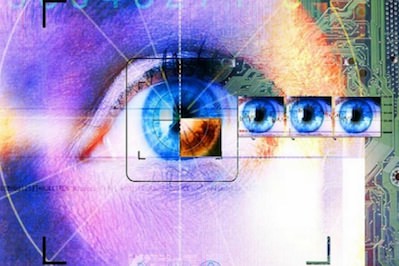 Police departments around the country are increasingly using the technology, without warrants or oversight, to identify and track targets. (Krzysztof Urbanowicz / flickr / cc)
Police departments around the country are increasingly using the technology, without warrants or oversight, to identify and track targets. (Krzysztof Urbanowicz / flickr / cc)
By Nadia Prupis / Common Dreams
Dozens of advocacy organizations are urging the U.S. Department of Justice to investigate the growing police use of facial recognition software, which the groups say violates civil liberties and disproportionately impacts people of color.
In a letter sent to the Justice Department on Tuesday, a coalition of 50 organizations led by the American Civil Liberties Union (ACLU) and the Leadership Conference on Civil and Human Rights called on the agency to investigate how police departments around the country are increasingly using the technology, without warrants or oversight, to identify and track targets.
“We need to stop the widespread use of face recognition technology by police until meaningful safeguards are in place,” said ACLU legislative counsel Neema Singh Guliani.
The letter was sent at the same time as Georgetown Law’s Center on Privacy & Technology released a report which found that half of all American adults—over 117 million people—are in a law enforcement facial recognition database, populated in large part by driver’s license photos and mugshots, and that a quarter of U.S. police departments can access the network. The technology itself is almost entirely unregulated.
Use of the technology is likely to worsen existing systemic biases, which will mostly impact people of color, the report and the groups warn.
“Face recognition is a powerful technology that requires strict oversight,” said report co-author and center associate Clare Garvie. “But those controls by and large don’t exist today. With only a few exceptions, there are no laws governing police use of the technology, no standards ensuring its accuracy, and no systems checking for bias. It’s a wild west.”
The study, The Perpetual Line-Up: Unregulated Police Face Recognition in America, states that the FBI is tapping into driver’s license databases to identify people whose images are captured while out in public, from pedestrians crossing the street to protesters attending a rally.
The report states:
Of the 52 agencies that acknowledged using face recognition, only one obtained legislative approval for its use and only one agency provided evidence that it audited officers’ face recognition searches for misuse. Not one agency required warrants, and many agencies did not even require an officer to suspect someone of committing a crime before using face recognition to identify her.
And as the coalition’s letter notes, using the technology at protests raises First Amendment concerns, citing a recent report by the ACLU and other groups that found Baltimore police had used it in tandem with social media monitoring tools to track and arrest protesters in the wake of Freddie Gray‘s death.
“Innocent people don’t belong in criminal databases,” Alvaro Bedoya, report co-author and the center’s executive director, said Tuesday. “By using face recognition to scan the faces on 26 states’ driver’s license and ID photos, police and the FBI have basically enrolled half of all adults in a massive virtual line-up. This has never been done for fingerprints or DNA. It’s uncharted and frankly dangerous territory.”
The ACLU’s Guliani added, “Half of all adults in the country are in government face recognition databases, yet the vast majority of law enforcement agencies using this technology lack clear policies, audits to ensure accuracy, and transparency.”
As Sakira Cook, counsel with the Leadership Conference on Civil and Human Rights, explained, “This technology supercharges the racial bias that already exists in policing. For the good of the nation, we can’t afford to let these inherently biased systems operate without any safeguards.”
Nadia Prupis is a staff writer at Common Dreams.
Your support is crucial…With an uncertain future and a new administration casting doubt on press freedoms, the danger is clear: The truth is at risk.
Now is the time to give. Your tax-deductible support allows us to dig deeper, delivering fearless investigative reporting and analysis that exposes what’s really happening — without compromise.
Stand with our courageous journalists. Donate today to protect a free press, uphold democracy and unearth untold stories.
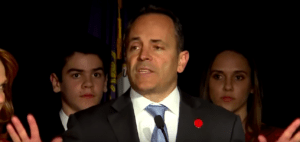
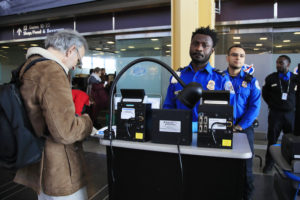
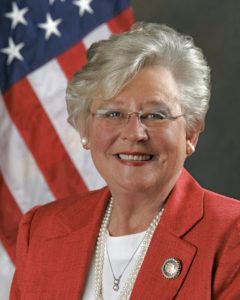
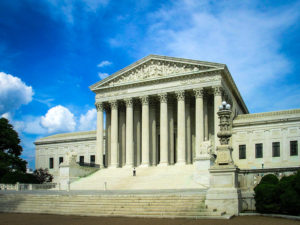
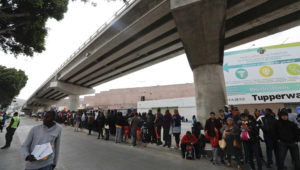
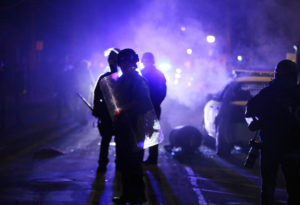
You need to be a supporter to comment.
There are currently no responses to this article.
Be the first to respond.